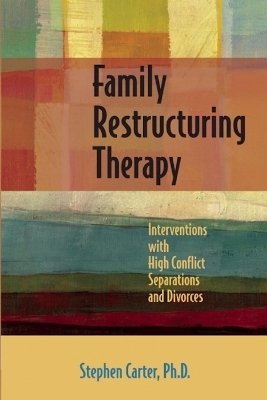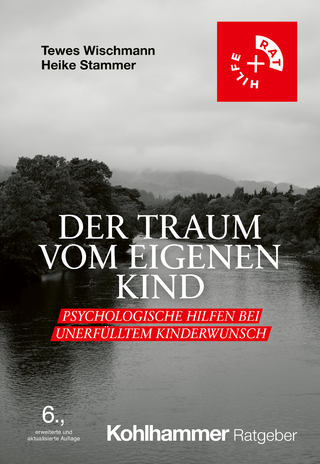
Family Restructuring Therapy
HCI Press (Verlag)
978-1-936268-39-9 (ISBN)
- Titel nicht im Sortiment
- Artikel merken
This book is a "how to" manual for working with families in separation and divorce using an active, directive therapeutic process called Family Restructuring Therapy. The strategy provided in this book can relieve the damage caused by conflict on children and help parents communicate effectively.
STEPHEN CARTER, Ph.D. has worked as a Registered Psychologist since 1992. Dr. Carter works with children, adolescents and adults. Much of his work focuses on therapeutic interventions and assessments of families involved in high conflict separation and divorce. He assists individuals and their families in dealing with serious problems including abuse, anxiety and depression, behavioural disorders, self injurious behaviour, relationship problems and work stress. Dr. Carter has delivered many workshops, presentations and media interviews on topics such as family restructuring therapy, high conflict divorce, assessment, grief and loss, conflict resolution, behavioural disorders, school violence, stress management, ethics, effective workplaces, running a private practice and expert witness testimony. Dr. Carter's work history includes employment as a teacher and a school counsellor prior to entering private practice. Along with working in private practice, Dr. Carter is an Adjunct Assistant Professor in the Department of Educational Psychology at the University of Alberta. He is a registered psychologist in Alberta, Canada; a member of the Canadian Register of Health Service Providers in Psychology; and has a Certificate of Professional Qualifications / Interjurisdictional Practice Certificate from the Association of State and Provincial Psychology Boards.
Acknowledgements
Introduction
Foreword
Part I: Background
Introduction to Family Restructuring Therapy
1. The Philosophy and Theory of Family Restructuring Therapy
Developmental Advantages and Disadvantages of Shared Parenting
Developmental Challenges Associated with Divorce
Attachment Between Parent and Child
Catalysts for Dysfunction-Just Add Conflict and Stir
Advantages of Shared Parenting
Disadvantages of Shared Parenting
Conclusions
Information on Bonding
2. Ethical Issues
Knowledge and Skill Base
Limitations
Multiple/Dual Roles
Informed Consent
3. Legal Issues
4. Therapist Characteristics
5. High-Conflict Parents and High-Conflict Children
High-Conflict Parents
High-Conflict Children
Part II: Processes of Family Restructuring Therapy
6. Working with the Parents
A. The Retainer Letter
B. The First Individual Sessions
C. The First Joint Session
D. Communication
E. Developing a Parenting Plan
F. Subsequent Joint Sessions
F.1.Problem-Solving
F.2. Exceptions to the Schedule
F.3. Out- of-Country Travel
F.4.Extracurricular Activity
Other Information on Subsequent Joint Sessions
G. Report Writing
G.1. Successful Family
G.2. Interim Report - Further Sessions Required
G.3. Issues to be Addressed by the Court
G.4. Unsuccessful Family Restructuring Therapy
7. Working with the Parents in a Therapeutic Team Approach
8. Working with the Children
9. Working with Families When the Children Have Rejected a Parent
10. Conclusion
Appendix: Parenting Plan List of Topics
References
About the Author
Other Books by HCI Press
| Erscheint lt. Verlag | 13.10.2011 |
|---|---|
| Zusatzinfo | black & white illustrations |
| Verlagsort | Scottsdale |
| Sprache | englisch |
| Maße | 152 x 228 mm |
| Gewicht | 198 g |
| Themenwelt | Sachbuch/Ratgeber ► Gesundheit / Leben / Psychologie ► Partnerschaft / Sexualität |
| Geisteswissenschaften ► Psychologie ► Entwicklungspsychologie | |
| Geisteswissenschaften ► Psychologie ► Familien- / Systemische Therapie | |
| Medizin / Pharmazie ► Medizinische Fachgebiete ► Psychiatrie / Psychotherapie | |
| ISBN-10 | 1-936268-39-6 / 1936268396 |
| ISBN-13 | 978-1-936268-39-9 / 9781936268399 |
| Zustand | Neuware |
| Haben Sie eine Frage zum Produkt? |
aus dem Bereich


